Marion Walter Jacobs
b. May 1st, 1930 in Marksville (Louisiana)
d. February 15th, 1968 in Chicago (Illinois)
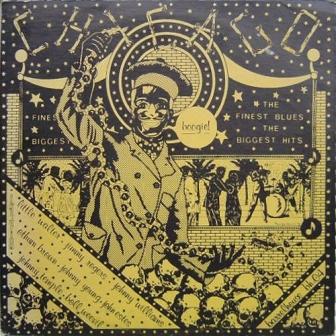
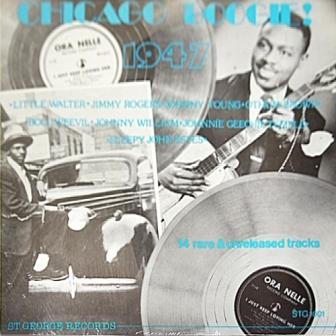
CHICAGO BLUES
Barrelhouse
CHICAGO BOOGIE 1947
St George
Summer 1947
Né à Marksville en Louisiane, il grandit à Alexandria avec son père où il apprend l'harmonica. Il quitte l'école assez jeune et tente de gagner sa vie en exerçant divers petits métiers. Walter parcourt le Sud, de la Nouvelle Orléans à Saint Louis en passant par Memphis et Helena. Il arrive finalement à Chicago en 1945 et semble accompagner le guitariste Floyd Jones. A l'été 1946, sa notoriété a grandi et il devient l'attraction régulière du Purple Cat Lounge. Sur le marché de Maxwell Street, il a l'idée de jouer de son harmonica contre un microphone qu'il tient dans sa main, branché à un amplificateur. Ainsi, il peut rivaliser avec le son des guitares et se placer son instrument au premier plan. D'abord influencé par John Lee "Sonny Boy" Williamson, Walter développe rapidement un son qui lui est propre composant notamment de superbes solos qui marqueront des générations de musiciens. Il grave ses premiers morceaux en 1947 pour le compte de Bernard Abrams qui dirige le petit label Ora-Nelle sur Maxwell Street. Il y est accompagné des guitaristes Othum Brown et Jimmy Rogers.
Born in Marksville in Louisiana, he grew up in Alexandria with his father where he learned harmonica. He leaves school quite young and tries to make a living by practicing various small jobs. Walter travels south, from New Orleans to Saint Louis via Memphis and Helena. He eventually arrived in Chicago in 1945 and appeared to accompany guitarist Floyd Jones. In the summer of 1946, his notoriety grew and he became the regular attraction of the Purple Cat Lounge. In the Maxwell Street market, he has the idea to play his harmonica against a microphone that he holds in his hand, connected to an amplifier. Thus, he can compete with the sound of guitars and place his instrument in the foreground. Initially influenced by John Lee "Sonny Boy" Williamson, Walter quickly develops his own sound composing superb solos that will mark generations of musicians. He cut his first tracks in 1947 on behalf of Bernard Abrams, who ran the small Ora-Nelle label on Maxwell Street. He is accompanied by guitarists Othum Brown and Jimmy Rogers.
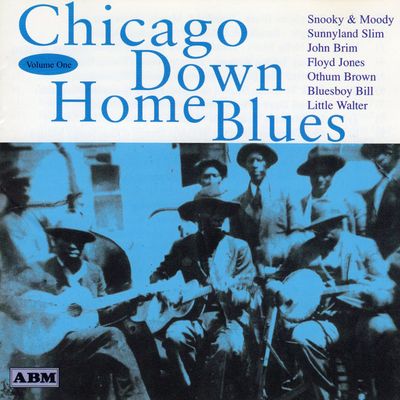
CHICAGO DOWN HOME BLUES vol.1
ABM
May 1949
Après sa première expérience chez Ora-Nelle, il grave un simple pour Tempo Tone en compagnie de Sunnyland Slim, Muddy Waters, Leroy Foster et Elga Edmonds.
After his first experience at Ora-Nelle, he recorded a single for Tempo Tone with Sunnyland Slim, Muddy Waters, Leroy Foster and Elga Edmonds.
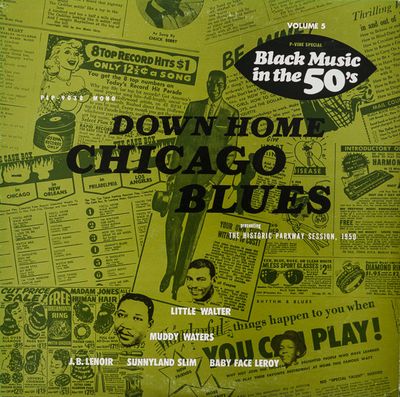
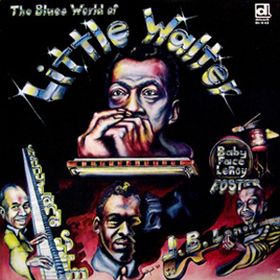
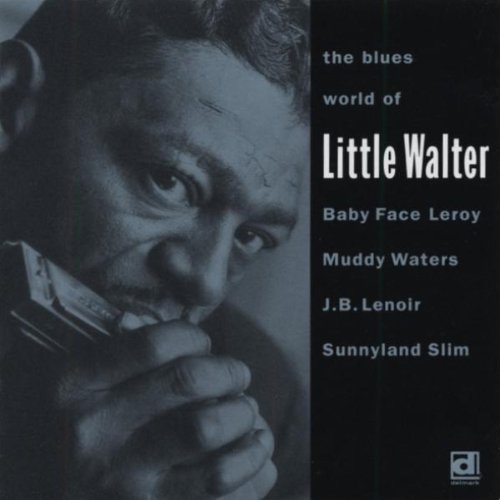
DOWN HOME CHICAGO BLUES
P-Vine
THE BLUES WORLD OF LITTLE WALTER
Delmark
January 1950
Walter participe à une séance d'enregistrement pour Parkway-Regal en janvier 1950 à nouveau avec Muddy Waters et Leroy Foster. Ces très beaux morceaux ("Muskadine blues", "Moonshine blues", "Bad actin' woman") montrent clairement un artiste en devenir. Pour certains d'entre eux, Walter tient la guitare, un instrument dont il jouait occasionnellement.
Walter participates in a recording session for Parkway-Regal in january 1950 with Muddy Waters and Leroy Foster again. These very beautiful tracks ("Muskadine blues", "Moonshine blues", "Bad actin' woman") clearly show an artist in the making. For some of them, Walter holds the guitar, an instrument he played occasionally.
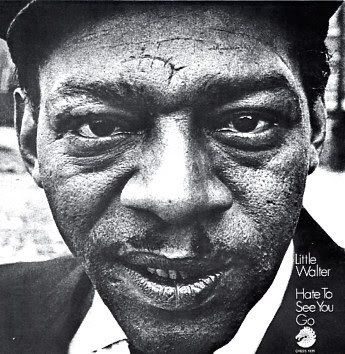
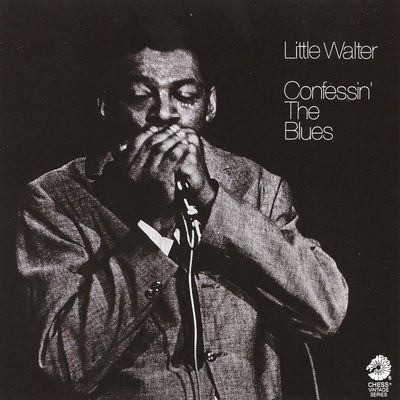
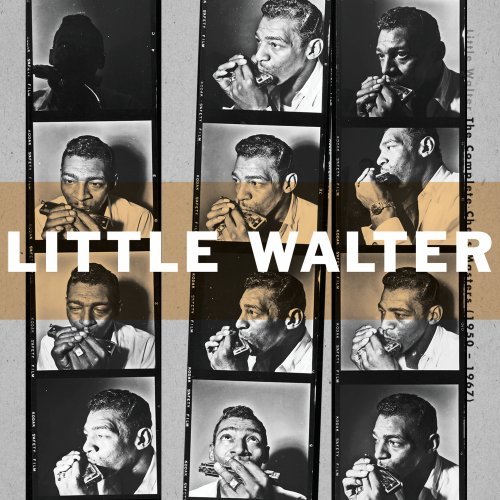
HATE TO SEE YOU GO
Chess - MCA
October 1952 - December 1960
CONFESSIN' THE BLUES
Chess - MCA
March 1953 - February 1959
THE COMPLETE CHESS MASTERS
Hip-O Select
October 1950 - January 1967
Impressionné par ce jeune talent, Muddy Waters l'embauche dans son groupe en 1948. Little Walter l'accompagne régulièrement jusqu'en 1952, date à laquelle il grave ses premiers morceaux en leader pour Chess. Effectivement, en mai 1952, sa carrière en leader démarre sur le label Checker (appartenant à Chess). Son instrumental "Juke" est un succès instantané. Mais, tous ses premiers morceaux sont de sensationnels chefs d'oeuvre : "Can't hold out much longer" et surtout "Blue midnight" et "Boogie" dans lesquels l'ampleur sonore de son harmonica est à son meilleur. D'abord associé à Muddy Waters et Jimmy Rogers, Walter bénéficie ensuite de l'apport de sidemen prestigieux comme Louis & Dave Myers, Fred Below, Robert Lockwood Jr, Willie Dixon, Luther Tucker, Jimmy Lee Robinson, Freddy Robinson. Avec eux, il compose (avec le concours de Willie Dixon) une oeuvre en tout point remarquable ponctuée de nombreuses pépites : le sublime "Sad hours", "Mean old world", "Fast boogie", "Off the wall", "Quarter to twelve", "That's it", "Fast large one", "Come back baby", "Too late", "Last night", "Mellow down easy", "My babe", "Hate to see you go", "It ain't right", "Teenage beat", "Ah'w baby", "Everything's gonna be alright". Malheureusement, son alcoolisme et aussi un tempérament violent et sournois l'éloignent de plus en plus des studios et de ses musiciens. Dès la fin des années 50, il n'a plus de groupe régulier et sa notoriété décroit rapidement.
Impressed by this young talent, Muddy Waters hired him in his band in 1948. Little Walter accompanied him regularly until 1952, when he recorded his first tracks as a leader for Chess. Indeed, in may 1952, his career as a leader started on the Checker label (owned by Chess). His instrumental "Juke" is an instant success. But all his first tracks are sensational masterpieces : "Can't hold out much longer" and especially "Blue midnight" and "Boogie" in which the sound amplitude of his harmonica is at its best. Initially associated with Muddy Waters and Jimmy Rogers, Walter then benefits from some prestigious sidemen contribution as Louis & Dave Myers, Fred Below, Robert Lockwood Jr, Willie Dixon, Luther Tucker, Jimmy Lee Robinson, Freddy Robinson. With them, he composed (with the help of Willie Dixon) a remarkable work punctuated by many gems : the sublime "Sad hours", "Mean old world", "Fast boogie", "Off the wall", "Quarter to twelve", "That's it", "Fast large one", "Come back baby", "Too late", "Last night", "Mellow down easy", "My babe", "Hate to see you go", "It ain't right", "Teenage beat", "Ah'w baby", "Everything's gonna be alright". Unfortunately, his alcoholism and also a violent and sneaky temperament keep him more and more away from the studios and his musicians. By the end of the 1950's, he no longer had a regular band and his notoriety rapidly declined.
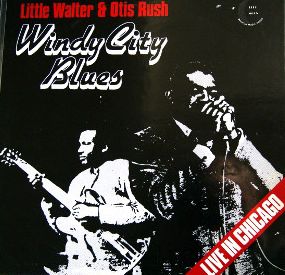
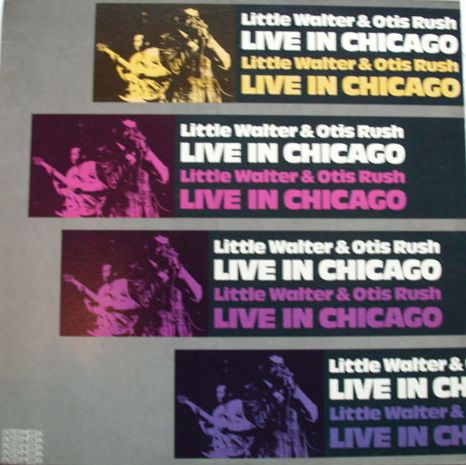
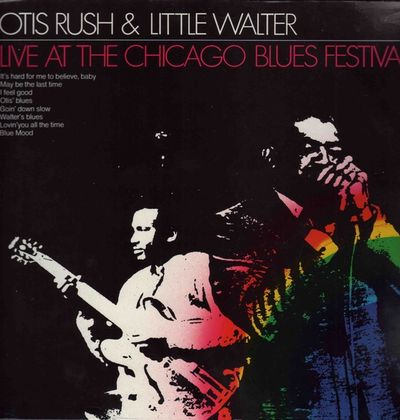
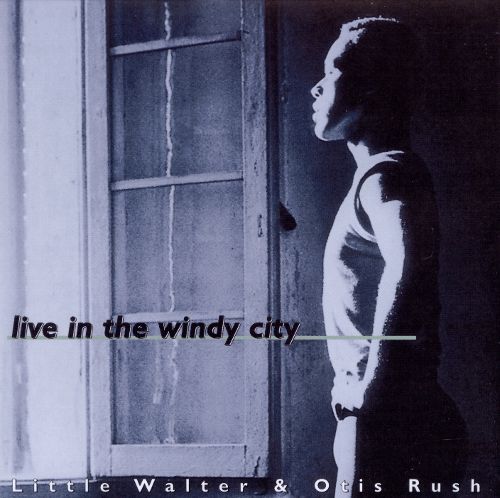
WINDY CITY BLUES
Blue Moon
LIVE IN CHICAGO
Intermedia
LIVE AT CHICAGO BLUES FESTIVAL
Cleo
LIVE IN THE WINDY CITY
Columbia
May 1966
Sur la scène de l'Université de Chicago, Little Walter délivre une prestation correcte aux côtés de Sammy Lawhorn, Junior Pettis et Fred Below. Ce LP est partagé entre Otis Rush et Little Walter (une face chacun).
On the University of Chicago stage, Little Walter delivers a good performance alongside Sammy Lawhorn, Junior Pettis and Fred Below. This LP is shared between Otis Rush and Little Walter (one side each).
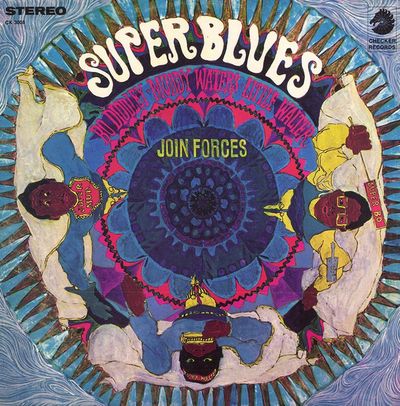
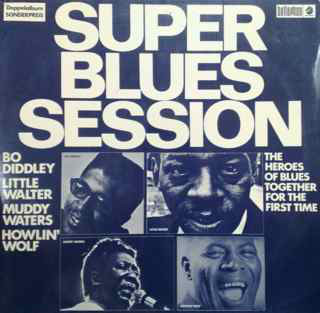
SUPER BLUES
Checker
Chess - MCA
SUPER BLUES SESSION
Bellaphon
January 1967
Sous la supervision de Ralph Bass et dans une moindre mesure de Marshall & Phil Chess, ce disque rassemble Bo Diddley, Little Walter, Muddy Waters au début de l'année 1967. Il s'agit d'une tentative de faire sonner ces piliers du Blues avec les sonorités Rock de l'époque. Si quelques bons moments peuvent parfois émerger, la production apparait beaucoup trop chargée et lourde. Quant à Little Walter - physiquement diminué et peu inspiré - il n'est que l'ombre de lui-même.
Under the supervision of Ralph Bass and to a lesser extent Marshall & Phil Chess, this album brings together Bo Diddley, Little Walter and Muddy Waters at the beginning of 1967. It is an attempt to make these blues pillars sound like the Rock sounds of the time. If a few good moments can sometimes emerge, production appears overload and heavy. As for Little Walter - physically diminished and little inspired - he is only the shadow of himself.
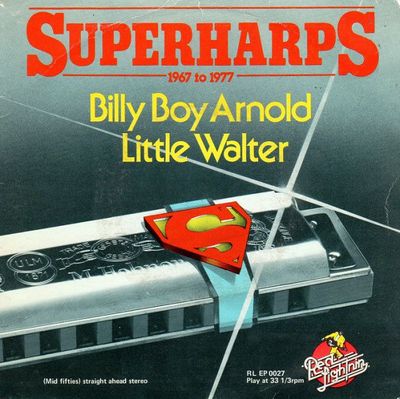
SUPERHARPS (EP)
Red Lightnin'
January 1967
On trouve dans cet EP deux morceaux inédits issus de la séance de "Super blues" (ils ont depuis été repris dans la version CD de "Super blues"). Aussi peu intéressant que le disque original.
We find in this EP two unreleased tracks from the "Super Blues" session (they have since been included in the CD version of "Super Blues"). As uninteresting as the original disc.
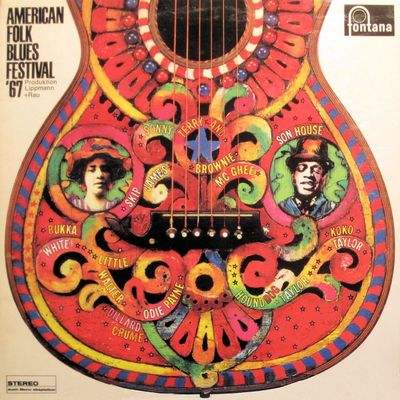
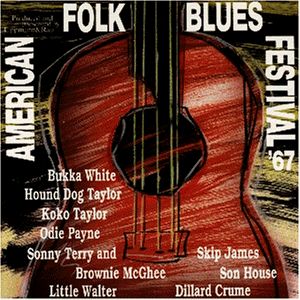
AMERICAN FOLK BLUES FESTIVAL '67
Fontana
L+R
Bellaphon
October 1967
Il participe à la tournée de l'American Folk Blues Festival de 1967 (il avait déjà tourné en Angleterre en 1964) mais Walter ne s'intègre pas réellement dans le groupe. Bien loin de son niveau initial et passablement mal accompagné, il ne livre pas une performance mémorable.
He participated in the American Folk Blues Festival 1967 tour (he had already toured England in 1964) but Walter did not really become integrated with the group. Far from his initial level and fairly poorly accompanied, he does not deliver a memorable performance.
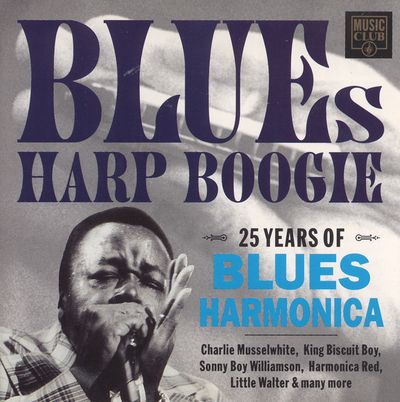
BLUES HARP BOOGIE
Music Club
October 1967
Dans ce recueil, on trouve un titre inédit - l'instrumental "Walter's jump" - enregistré lors de l'American Folk Blues Festival. Quelques mois après son retour d'Europe, il est impliqué dans une bagarre dans un club de Chicago. Sévèrement blessé, il décède dans son sommeil à son domicile le jour suivant.
In this collection, there is an unreleased track - the instrumental "Walter's jump" - recorded at the American Folk Blues Festival. A few months after his return of Europe, he is involved in a fight in a Chicago club. Severely wounded, he died in his sleep the next day.
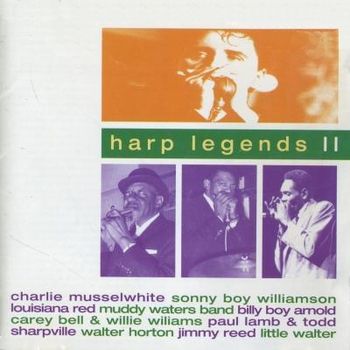
HARP LEGENDS vol.2
Catfish
October 1967